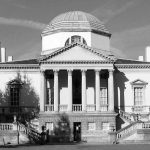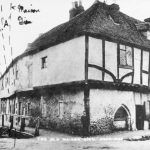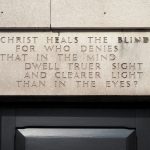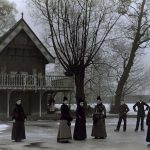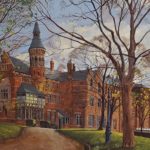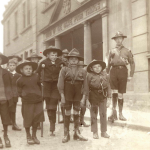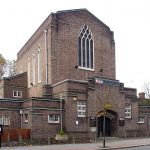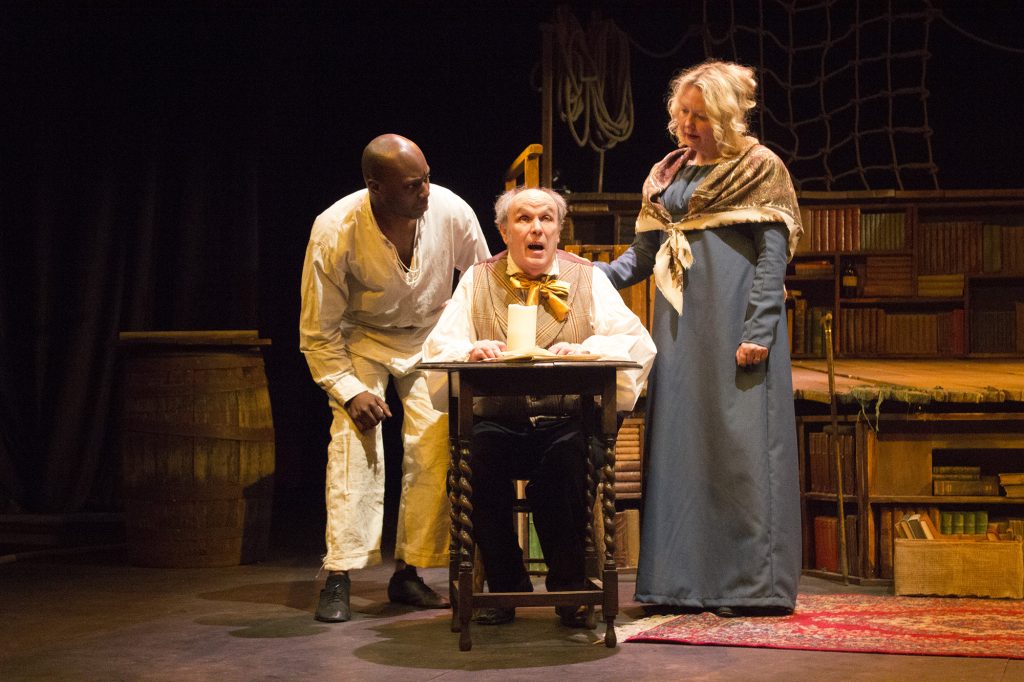Last week Our Liverpool based Project Coordinator Kerry attended a performance of Unsung at the Everyman Theatre in Liverpool. Here Kerry shares her thoughts on the play and the significance of Edward Rushton to the History of Place project.
Unsung is a play presented by DaDaFest (my host organisation) and Turf Love. It was written by John Graham Davies and James Quinn, directed by Chuck Mike, produced by Ruth Gould, performed by a wonderful cast of actors and brought to life by a talented creative team. Unsung tells the story of Edward Rushton, founder of the Royal School for the Indigent Blind, and intends to make his story better known.
Rushton was a human rights advocate and many other things; a blind man who campaigned for disability rights, a poet, a political campaigner, an anti war activist, founder of a dedicated blind school and anti slavery campaigner. Yet he has been forgotten, has vanished from history, and is an unknown character, in Liverpool, his hometown, also.
Edward Rushton is a forgotten hero.
 Rushton was born in 1756 in Liverpool and was apprenticed as a seaman to a firm of West India merchants aged eleven. By age eighteen Rushton was aboard his first, and last, ship transporting slaves from Africa. Aboard the ship Rushton opposed the poor treatment and conditions of the slaves and was accused by his Captain of a mutiny.
Rushton was born in 1756 in Liverpool and was apprenticed as a seaman to a firm of West India merchants aged eleven. By age eighteen Rushton was aboard his first, and last, ship transporting slaves from Africa. Aboard the ship Rushton opposed the poor treatment and conditions of the slaves and was accused by his Captain of a mutiny.
Rushton opposed the poor treatment and conditions of the slaves and was accused by his Captain of a mutiny.
Rushton’s contact with infected slaves on the ship resulted in him contracting ophthalmia from them and he arrived back in Liverpool shortly after totally blind. Following his poor treatment as a blind man, and the realisation that blind people were often homeless, jobless and treated as an act of entertainment, Rushton founded a residential school in 1791 which expanded to become the Royal School for the Indignant Blind, now the Royal School for the Blind.
Rushton fought for inclusivity in society. He participated in anti-slavery campaigning. He wrote poetry to illustrate his point about human rights issues. He wrote to George Washington to criticise him for owning slaves. He supported the revolution in France. He generated petitions which he encouraged patrons to his bookshop to sign. He wrote about strong, female characters in his poems and criticised domestic violence.
Rushton’s story was unsung……..until now.
Rushton was haunted by his experiences on the ship, particularly Kwamina saving Rushton’s life by sacrificing his own following their long boat capsizing off the coast of Jamaica.
The performance itself was brilliant. At times I had tears in my eyes because the dialogue and atmosphere was so evocative. The play moves between two periods in Rushton’s life-his experiences as a teenager on a ship carrying ‘cargo’, human slaves, and an older Rushton preparing for an operation to potentially restore his sight, with scenes detailing his campaigning between these two periods scattered throughout the performance. The particularly moving aspect of the play was Rushton’s relationship with Kwamina, a black slave aboard the ship with whom he developed a friendship. Written memoirs from Rushton’s son Edward and his friend William Shepherd suggest that Rushton was haunted by his experiences on the ship, particularly Kwamina saving Rushton’s life by sacrificing his own following their long boat capsizing off the coast of Jamaica.
 What is most interesting about the Kwamina character is that his ‘haunting’ of Rushton isn’t your typical Dickens style, moral conscience ghost, but a loyal voice to remind Rushton, and in turn the audience, of the good he has done, his achievements and accomplishments.
What is most interesting about the Kwamina character is that his ‘haunting’ of Rushton isn’t your typical Dickens style, moral conscience ghost, but a loyal voice to remind Rushton, and in turn the audience, of the good he has done, his achievements and accomplishments.
What was particularly brilliant about Unsung was its approach to inclusive communication and language. The play included a BSL speaking actor who signed her lines, the full play was captioned and a number of the performances offered BSL interpretation, audio descriptions and a touch tour. The script didn’t shy away from using terms and words that are offensive to a modern audience to illustrate the point. What was heart warming was the audience’s reaction to these words-shocked gasps and muttered disgust. It brought to light just how far we have come in challenging inequality and ignorance, yet how far we have still to go before we are all truly treated as equals.
For me, watching Unsung has brought to life the founder of the Royal School for the Blind, the site we are investigating in Liverpool, and I’m very excited to be working with the Liverpool based Volunteer Research and Archive Group to explore the heritage of the school further. We look forward to uncovering stories and sharing them with you in creative ways. To find out more about the Volunteer Research and Archive Group (groups are based in Liverpool, Bristol, London and Kent and we welcome people who would like to research from home) please get in touch with us info@accentuateuk.org.

